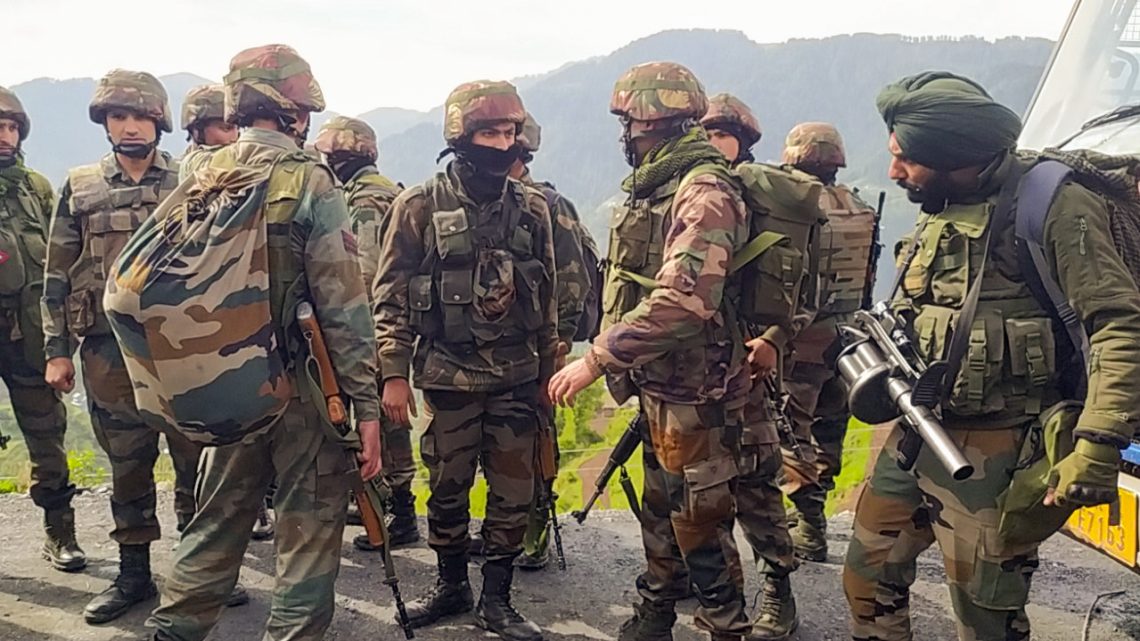
Ganderbal Attack: India’s False Flag Operation against Pakistan
October 30, 2024On October 20, 2024, a tragic incident in the Ganderbal district of Indian Illegally Occupied Jammu and Kashmir (IIOJK) resulted in the deaths of seven individuals, including a doctor, and left five others injured. Reports indicate that armed assailants targeted an Indian construction company at the Z-Morh tunnel along the Srinagar-Leh Highway.
In the immediate aftermath, the Indian government swiftly attributed blame to Pakistan, alleging its role in facilitating cross-border terrorism. However, Pakistan vehemently denied these accusations, labeling them as a baseless “False Flag Operation” (FFO) orchestrated by India.
The backdrop of this incident is crucial for understanding the complex narrative surrounding Kashmir. Following the abrogation of Articles 370 and 35A in 2019, which granted special status to Jammu and Kashmir, the Indian government has claimed significant strides toward peace and development in the region. Yet, the reality on the ground tells a different story.
The recent rejection of the ruling Bharatiya Janata Party (BJP) in state assembly elections further undermines the government’s narrative of normalcy. Indian military officials have frequently asserted successes in countering cross-border terrorism. The General Officer Commanding (GOC) of the 15 Corps reported a drastic reduction in infiltration attempts, claiming only 30 attempts in the past year compared to 130 in 2020.
Other officials echoed similar sentiments, declaring peace along the Line of Control (LoC) and a significant drop in active militants. However, these declarations seem increasingly incongruous in light of ongoing violence and unrest.
False Flag Operations have become a contentious strategy, allegedly employed by India to manipulate public perception and justify military actions in IIOJK. These operations often involve staged encounters and fabricated narratives designed to foster a war-like atmosphere.
A report by the Group of Concerned Citizens in 2018 indicated that a vast majority of young Kashmiris are inspired by indigenous freedom fighters, not by external influences like Pakistan. In the wake of the Ganderbal attack, Lieutenant Governor Manoj Sinha’s accusations against Pakistan, without providing substantive evidence, raise questions about the motivations behind such claims.
The timing of these allegations suggests a deliberate attempt to escalate tensions and distract from the grim realities facing the Kashmiri populace, including arbitrary detentions and human rights abuses.
The ongoing strife in IIOJK mirrors broader regional conflicts, drawing parallels with situations like Gaza. For decades, Kashmiris have faced oppression, leading to widespread resentment and a burgeoning indigenous freedom movement.
The Indian government’s narrative frequently shifts to deflect attention from its internal challenges, utilizing anti-Pakistan rhetoric as a tool of diversion. Moreover, India’s recent international controversies, including allegations of overseas assassination plots, complicate its standing on the global stage.
Amidst these escalating tensions, calls for independent fact-finding missions and unbiased media assessments of the situation in IIOJK are becoming increasingly urgent. Transparency is vital to address the deep-rooted issues plaguing the region and to provide a platform for the voices of Kashmiris.
The Ganderbal attack and the subsequent accusations against Pakistan highlight the fraught and often convoluted nature of the conflict in IIOJK. It is imperative for both local and international observers to remain vigilant and informed, ensuring that the narratives surrounding this complex issue are grounded in truth rather than propaganda. The situation demands careful scrutiny and a commitment to peace, justice, and human rights for all affected by this long-standing conflict.

